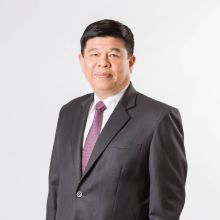Challenge
There are large regional disparities in human capital development in ASEAN, including a double burden of malnutrition and overnutrition in several countries. Undernutrition elevates the risk of infant and child morbidity and mortality, increases expenditure on health care and social safety nets, lowers the efficiency of investments in education, and decreases lifelong income-earning potential and labor force productivity, with the potential to be transmitted across generations. Estimates for some ASEAN member states show undernutrition resulting in annual losses of between 2.4% - 4.4% of GDP. Overnutrition compounds the challenges, with direct health care costs related to treatment of obesity-linked chronic diseases as well as indirect costs, particularly from the loss of labor productivity.
Further, the region has seen increased environmental degradation, including the growing challenge of marine debris pollution. Six ASEAN Member States generated a total of 243 million tons of waste in 2016. Increasing amounts of plastics in the oceans present a challenging transboundary issue that negatively impacts the region’s coastal economies, devastates marine life, and adversely impacts tourism and human health.
There are more than 16 regional connectivity initiatives. Some are among ASEAN countries; some are between a subset of ASEAN members with countries outside ASEAN. The key challenge is to maneuver the complexity of overlaps and gaps among these regional initiatives. Thailand is emerging as a regional champion of regional connectivity and integration. Part of its agenda for its ASEAN chairmanship was to advance progress in synergizing the large number of regional connectivity initiatives.
Approach
The new Thailand – World Bank Group Country Partnership Framework (CPF) effective from July 2019 to June 2022, encompasses the 70th Anniversary of the World Bank’s partnership with the Kingdom of Thailand. In this upper middle-income country, the World Bank’s support includes mobilization of resources and provision of technical support, particularly through the sharing of Bank expertise as well as global knowledge and solutions.
Thailand chaired ASEAN in 2019 and the World Bank provided support in three critical regional challenges: human development, regional connectivity, and marine plastic debris.
This support was provided by organizing meetings, knowledge sharing sessions and technical assistance on analytical works for priority areas and addressing regional developmental environmental challenges such as marine plastic debris, human capital development, malnutrition and stunting, and regional connectivity.
Results
Through its chairmanship, Thailand is leading the call for ASEAN countries in 2019 to start taking concrete actions to reduce marine plastics pollution in the East Asia region. The Bank worked with the government and partners to prepare and coordinate support of ASEAN member countries for the Bangkok Declaration on Combating Marine Debris in the region, which was adopted at the 34th ASEAN Summit in June 2019. The Bangkok Declaration covers collaboration, regional planning, marine debris monitoring, research, innovation, public awareness, education, outreach and private sector engagement.
To support the nutrition agenda, the Bank prepared a policy paper on key trends and emerging challenges for ASEAN in the double burden of malnutrition, which was presented at the ASEAN Summit and endorsed by member states. The World Bank co-hosted with the Thai government a high-level meeting in September 2019 with key ministers and senior government officials on accelerating human capital development in the region. At the meeting’s conclusion, ASEAN ministers and officials agreed to enhance integrated policy investment in different sectors including healthcare, quality education, life-long learning, and skills development, throughout a human life cycle.
Finally, the World Bank prepared and delivered a presentation on “Connecting the Connectivities” and supported the launch of the ASEAN Priority Infrastructure Pipeline at the ASEAN Summit Minister’s meeting in November 2019.

